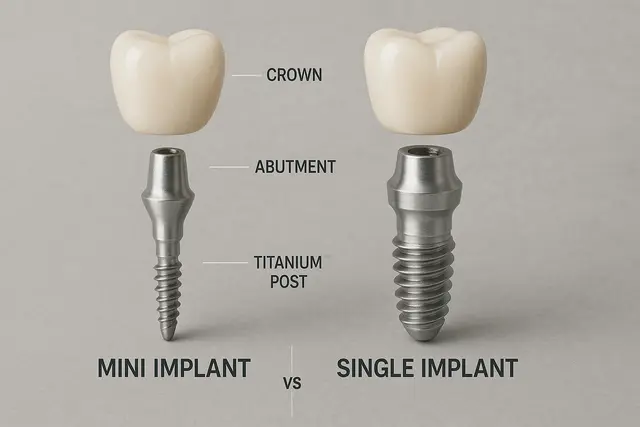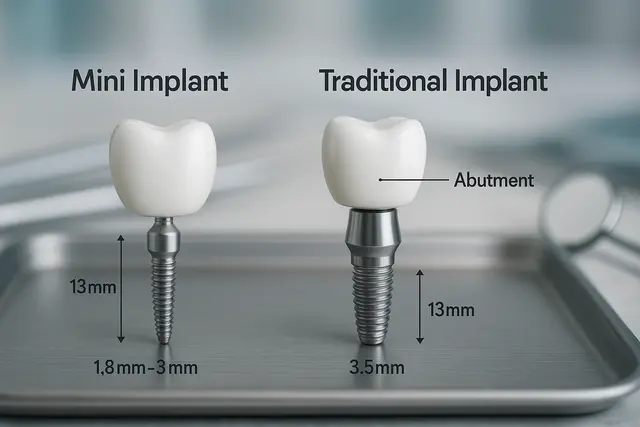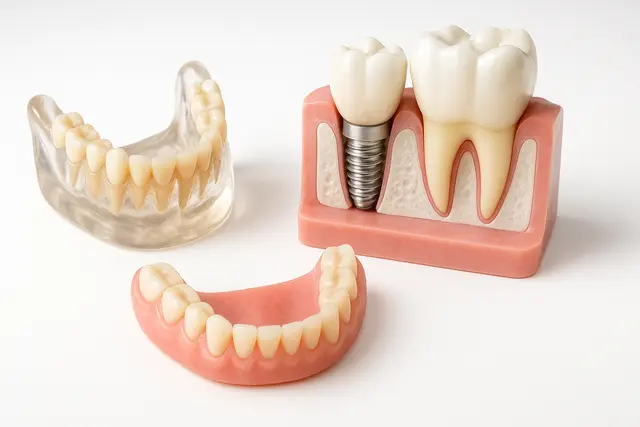Prosthodontics
4 min read
Aug 14, 2025
All-on-4 Dental Implants Insurance: How to Maximize Your Benefits
Replacing missing teeth with a stable, natural-looking solution is life-changing, and all-on-4 dental implants are one of the most effective options available. Before making the decision, it’s essential to understand how insurance coverage works, what out-of-pocket costs to expect, and the factors that influence the final price.

Losing your teeth isn't just a cosmetic issue, it messes with your confidence, your smile, and your ability to enjoy a good steak. That’s why many people turn to dental implants, and more specifically, the All-on-4 system. But while the results are life-changing, the price tag can be a bit of a jaw-dropper. The good news? With the right insurance plan, strategy, and timing, you can seriously cut your out-of-pocket costs.
Let’s break down how to navigate dental insurance to cover dental implants without losing your mind or your wallet.
Understanding Dental Insurance Plans and What They Actually Cover
Here’s the hard truth: many dental insurance plans don’t exactly roll out the red carpet when it comes to covering advanced dental treatments like implants. Traditional plans were built around cleanings, fillings, and the occasional crown. So when it comes to implants, and especially something as involved as All-on-4 dental implants, the insurance benefits might feel like an afterthought.
But don’t count them out. Some insurance providers are stepping up, especially if you do a bit of legwork. While the full cost of All-on-4 might not be fully covered by your insurance, portions of the procedure often are.
Pro tip: Always read the fine print of any insurance plan. Look for terms like:
“Major dental procedures”
“Medically necessary”
“Prosthodontics”
These little phrases might help cover part of the cost.
Why All-on-4 Dental Implants Are Worth It
All-on-4 is exactly what it sounds like, four dental implants supporting a full set of upper or lower teeth. It’s a more permanent and stable option than dentures, and yes, implants stimulate the jawbone, which helps prevent that sunken facial look that comes with missing teeth.
The dental implant cost for All-on-4 can range anywhere from $15,000 to $30,000 or more, depending on your location, dentist, and complexity of the case. That’s where maximizing your insurance coverage comes into play.
The Truth About Dental Implants and Insurance
Now, here’s the million-dollar (or hopefully less) question: does dental insurance cover implants? The answer is… it depends. Some dental insurance providers offer partial coverage for dental implant procedures, but only if the procedure is considered medically necessary or part of a specific dental plan.
If your insurance company covers dental implants at all, it’ll usually pay a percentage of the cost up to your annual maximum. Typical dental insurance policies have an annual maximum between $1,000 and $2,500. That’s not going to cover implants entirely, but it helps.
Also, check for a waiting period. Many dental insurance policies include a 6- to 12-month waiting period before they’ll help cover major procedures like implants. This is especially true if you’re switching providers or just signed up.
Steps to Maximize Insurance Coverage for Dental Implants
If you want to make sure your insurance cover dental implants to the fullest, follow these steps:
Ask Your Dentist for a Predetermination
Before committing to anything, have your dentist send a treatment plan to your insurance provider. This gives you a clear idea of what’s covered, what’s not, and how much the plan will pay for dental work.
Time It Right
Got a plan with an annual maximum? Consider splitting your treatment across two calendar years. Start in December, finish in January, and double the amount your insurance may cover.
Check Medical Insurance
In some cases, medical insurance, not just dental, might step in. If your implant procedure is tied to a medical condition (like bone loss from an accident or disease), your medical insurance may cover part of the treatment.
Get Supplemental Insurance
Consider getting supplemental dental implant insurance. These are designed specifically for treatments that most standard plans don’t cover. One way to help offset uncovered costs is through dental implant financing, which some patients use to bridge insurance gaps.
Uncovered Costs and How to Handle Them
No matter how great your insurance is, there will be costs not covered. This might include bone grafting, CT scans, or temporary dentures during the healing process.
This is where flexible payment plans can be your new best friend. Many dental implant centers offer these to help cover out-of-pocket expenses. Some even work with third-party financing companies that specialize in medical expenses.
You could also use a health savings account (HSA) or flexible spending account (FSA) to pay for costs not covered by insurance. These use pre-tax dollars, so you save a bit more.
What to Check in Your Dental Implant Coverage
One of the biggest frustrations for patients is thinking something is covered, only to find out it’s not. Not all insurance policies are created equal. The best dental insurance for implants will lay it out clearly, what’s covered, what isn’t, and what the timeline looks like.
So if you’re shopping around, ask these questions:
Does this dental insurance cover dental implants?
What’s the waiting period?
What’s the annual maximum?
Are All-on-4 dental implants covered?
Are implants considered medically necessary?
Is there a pre-existing condition clause?
Answers to these questions will help you find an insurance that covers the dental implant procedure and avoids nasty surprises.
Does Dental Insurance Fully Cover All-on-4 Dental Implants?
Most dental insurance plans do not fully cover All-on-4 dental implants. At best, you may receive partial coverage for specific parts of the treatment, such as the surgical placement or the crown portion. Many insurers consider implants elective or cosmetic unless deemed medically necessary, which can limit coverage. Always request a detailed breakdown from your provider to understand exactly what’s covered and what will be your out-of-pocket responsibility.
When Will Medical Insurance Cover Dental Implants?
Medical insurance may help cover dental implants if they are medically necessary due to an accident, injury, or certain medical conditions. In these cases, coverage usually applies to the surgical portion, while the prosthetic teeth may still fall under dental insurance rules. Your dentist can submit documentation to support the medical necessity of the procedure, increasing the likelihood of insurance assistance.
How Do Annual Maximums Affect Implant Coverage?
Even if your dental plan includes implant benefits, the annual maximum, the most your insurance will pay in a year, can significantly limit coverage. For example, if your annual maximum is $1,500 but your All-on-4 procedure costs several thousand dollars, you’ll pay the majority yourself. Understanding your annual maximum is essential for realistic budgeting.
What Can You Do if Your Insurance Only Partially Covers All-on-4 Implants?
If your insurance only provides partial coverage, you can combine benefits with other financing strategies. Options include interest-free payment plans through your dental provider, third-party financing, supplemental dental insurance, or using medical insurance for medically necessary portions of the procedure. This approach helps spread costs over time and makes treatment more manageable financially.
Read Next
Related Posts

Prosthodontics
Single Implant vs. Mini Implant: Key Differences, What Sets Them Apart
Missing teeth can impact everything from your confidence to your ability to eat comfortably. Thankfully, dental implants offer effective solutions, but not all implants are the same. Understanding the difference between a single implant and a mini implant can help you make the right choice for your needs.
5 min read
Oct 22, 2025

Prosthodontics
Mini Implants vs. Traditional Implants: How They Work and When to Choose Each
Missing teeth can impact more than just your appearance, they can affect your confidence, oral health, and ability to enjoy everyday activities like eating and speaking. Fortunately, dental implants offer a reliable solution. But when it comes to choosing between mini implants and traditional implants, the differences can be surprisingly significant.
5 min read
Oct 21, 2025

Prosthodontics
How to Choose Between Dentures and Implants for Tooth Replacement
Losing teeth can be a tough experience, physically, emotionally, and socially. Fortunately, modern dentistry offers reliable solutions to restore both function and confidence. Among the most popular options are dentures and dental implants, each with its own advantages depending on your needs, health, and lifestyle.
6 min read
Oct 21, 2025
Don’t have time to research every dentist around you?
See why 30k+ patients trusted us